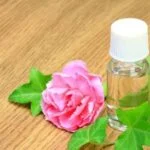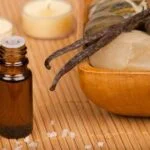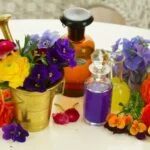Aromatherapy has been gaining popularity as a natural remedy for various health issues, but does it work for children? Many parents are turning to aromatherapy to help alleviate common childhood ailments and promote overall well-being in their little ones. In this article, we will explore the effectiveness of aromatherapy for children, the benefits it can offer, and how to use essential oils safely and effectively.
Aromatherapy involves using essential oils derived from plants to improve physical, emotional, and mental health. When it comes to children, aromatherapy can be a gentle and non-invasive way to address issues such as anxiety, sleep problems, respiratory difficulties, and skin conditions. But the question remains: does aromatherapy work for children? We’ll delve into this topic as we discuss the potential benefits and real-life success stories of using aromatherapy with children.
Understanding the benefits of aromatherapy for children is essential for parents who are exploring alternative treatment options. From promoting relaxation and better sleep to easing symptoms of common childhood illnesses, essential oils have been used for centuries to support overall wellness in both adults and children. In the following sections, we will uncover the specific benefits of aromatherapy for children and the different essential oils that can be beneficial for them.
Understanding the Benefits of Aromatherapy for Children
Aromatherapy has been used for centuries to promote physical and emotional well-being in individuals of all ages. When it comes to children, aromatherapy can offer a range of benefits that can support their overall health and wellness. Understanding these benefits is important for parents who are considering using essential oils with their children.
Calming Effects
One of the key benefits of aromatherapy for children is its ability to promote relaxation and reduce stress and anxiety. Essential oils such as lavender, chamomile, and sandalwood are known for their calming effects and can help children unwind after a long day at school or before bedtime.
Improved Sleep
Many parents struggle with getting their children to sleep through the night. Aromatherapy can be a natural and safe way to improve sleep quality in children. Essential oils like lavender and cedarwood have been shown to promote better sleep by creating a soothing and tranquil environment in the bedroom.
Enhanced Immune Function
Certain essential oils possess antimicrobial properties that can help protect children from common illnesses. Oils such as tea tree, eucalyptus, and lemon have antimicrobial properties that can support the immune system and ward off colds, flu, and other respiratory infections.
Overall, the use of aromatherapy for children has the potential to provide numerous benefits for their physical and emotional well-being. However, it is important for parents to understand how to safely use essential oils with their children in order to maximize these benefits while minimizing any potential risks.
Common Essential Oils Used for Children
When it comes to using essential oils for children, it is important to carefully select the best ones that are safe and effective for their age. Here are some common essential oils that are often used for children:
- Lavender: Known for its calming and soothing properties, lavender oil can help children relax and promote better sleep.
- Chamomile: Chamomile oil is often used to alleviate symptoms of anxiety, promote relaxation, and aid in digestion.
- Tea Tree: With its natural antibacterial properties, tea tree oil can be used to treat minor skin irritations and bug bites in children.
- Peppermint: Peppermint oil can help relieve symptoms of congestion, headaches, and nausea in children when appropriately diluted.
It is important to note that not all essential oils are safe for use with children, especially infants and young toddlers. Before using any essential oil on or around a child, it’s crucial to do thorough research or consult with a healthcare professional regarding their safety and proper dilution ratios.
Using the right essential oils in a safe manner can offer various benefits for children but it’s vital to ensure proper knowledge of the dosages and dilution ratios. Additionally, it’s important to consider any potential allergies or sensitivities individual children may have to certain aromatic compounds. Always perform a patch test before using any new essential oil on a child’s skin.
Safety Guidelines for Using Aromatherapy With Children
Aromatherapy is a natural and holistic approach to healthcare that utilizes the therapeutic properties of essential oils. When it comes to using aromatherapy for children, it’s important to prioritize safety and proper usage. Here are some guidelines for parents and caregivers to keep in mind when using aromatherapy with children:
- Consult with a healthcare professional: Before incorporating aromatherapy into a child’s healthcare routine, it’s crucial to consult with a pediatrician or an aromatherapist who specializes in working with children. They can provide personalized recommendations based on the child’s age, health status, and any existing medical conditions.
- Dilution is key: Essential oils are highly concentrated substances and should never be applied directly to the skin without proper dilution. For children, it’s recommended to dilute essential oils with a carrier oil, such as coconut oil or almond oil, before applying them topically.
- Avoid certain oils: Some essential oils are not safe for use with children due to their strong chemical composition. Oils such as eucalyptus, peppermint, and wintergreen should be avoided for young children as they can potentially cause respiratory issues or skin irritation.
In addition to these guidelines, it’s important for parents to be mindful of how they store essential oils at home. They should be kept out of reach of children and used in a well-ventilated area to minimize the risk of accidental ingestion or inhalation.
Overall, when used correctly and responsibly, aromatherapy can offer benefits for children in terms of promoting relaxation, supporting immune health, and addressing common childhood ailments. By following safety guidelines and seeking professional advice when needed, parents can ensure that they are using aromatherapy in a manner that is safe and beneficial for their little ones.
How to Use Aromatherapy for Common Childhood Ailments
Aromatherapy can be an effective and natural way to help alleviate common childhood ailments. Many parents are turning to essential oils as a gentle and soothing alternative to over-the-counter medications for their children. When used correctly, aromatherapy can provide relief for a variety of issues, from headaches and tummy aches to anxiety and sleep difficulties.
Topical Application
One of the most popular ways to use aromatherapy for children is through topical application. This can include adding a few drops of essential oil to a carrier oil, such as coconut or almond oil, and massaging it onto the skin. For headaches or tummy aches, lavender and peppermint essential oils are often recommended. For skin irritations or bug bites, tea tree or chamomile oil can be beneficial.
Aromatic Diffusion
Another common method for using aromatherapy with children is through aromatic diffusion. This involves adding essential oils to a diffuser or humidifier, allowing the scent to disperse throughout the room. Diffusing calming oils such as chamomile or lavender can help soothe anxiety and promote better sleep for children.
Inhalation
Inhalation is also a popular way to administer aromatherapy for children, especially for respiratory issues. Placing a few drops of eucalyptus or tea tree oil on a tissue near the child’s bed can help ease congestion and promote easier breathing during colds or allergies.
When using aromatherapy with children, it’s important to dilute essential oils properly and follow safety guidelines to avoid any adverse reactions. Additionally, parents should carefully monitor their child’s response to different oils, as each individual may react differently. Always consult with a healthcare professional before using aromatherapy for common childhood ailments to ensure that it is appropriate for your child’s specific needs.
Success Stories
Aromatherapy has been used for centuries to promote physical, emotional, and mental well-being. But does aromatherapy work for children? Many parents have shared their success stories when it comes to using essential oils for their children.
One common experience is using lavender essential oil to help calm and soothe a child who is feeling anxious or having trouble falling asleep. Parents have reported that diffusing lavender oil in the bedroom at bedtime has helped their children relax and get better sleep.
Another success story involves using peppermint essential oil to alleviate symptoms of nausea and headaches in children. Some parents have found that applying diluted peppermint oil on the temples of their child has provided relief from migraines or motion sickness.
Additionally, eucalyptus essential oil has been praised by some parents for its effectiveness in easing respiratory issues such as coughs and congestion in children. By adding a few drops of eucalyptus oil to a bowl of hot water and having the child inhale the steam, some parents have observed improvements in their child’s breathing.
Overall, there are numerous success stories from parents who have used aromatherapy with their children. While these anecdotes provide valuable insights, it’s important to remember that every child is different, and what works for one may not work for another. It’s also crucial to prioritize safety when using essential oils with children.
| Essential Oil | Common Use |
|---|---|
| Lavender | Calming anxiety and promoting better sleep |
| Peppermint | Alleviating nausea and headaches |
| Eucalyptus | Easing respiratory issues like coughs and congestion |
Debunking Myths and Misconceptions About Aromatherapy for Children
Aromatherapy has been a controversial topic when it comes to its effectiveness for children. There are several myths and misconceptions surrounding this form of alternative medicine, which often leads to confusion and skepticism among parents. Let’s take a closer look at some of these myths and debunk them with scientific evidence.
One common misconception about aromatherapy for children is that it is just a placebo effect. Some people believe that the use of essential oils is purely psychological and has no real physical benefits. However, research has shown that certain essential oils have therapeutic properties that can help alleviate symptoms of various conditions such as anxiety, insomnia, and even respiratory issues in children.
Another myth surrounding aromatherapy for children is that it can be harmful or toxic. While it is true that essential oils should be used with caution, especially with young children, when used properly and in recommended dilutions, they can be safe and beneficial. It is important for parents to educate themselves on proper usage and adhere to safety guidelines when incorporating aromatherapy into their child’s wellness routine.
Furthermore, there is a belief that aromatherapy is only effective for adults and not suitable for children. On the contrary, many essential oils have been found to be beneficial for children when used appropriately. For example, lavender oil has been shown to promote relaxation and improve sleep quality in children, while tea tree oil has antimicrobial properties that can help with minor skin irritations.
| Myth/Misconception | Debunking Evidence |
|---|---|
| Aromatherapy is just a placebo effect | Research has shown therapeutic properties of certain essential oils |
| Aromatherapy can be harmful or toxic | Safe usage in recommended dilutions reduces risk of harm |
| Aromatherapy is only effective for adults | Many essential oils have proven benefits for children |
Consult With a Healthcare Professional
In conclusion, aromatherapy has shown to be beneficial for children in many aspects. From promoting relaxation and better sleep to helping with symptoms of common childhood ailments, essential oils have been a valuable resource for many parents. However, it is important for parents to understand the safety guidelines and consult with a healthcare professional before using aromatherapy with their children.
While there are success stories and real-life experiences that showcase the positive effects of aromatherapy for children, it is crucial to debunk myths and misconceptions surrounding this practice. By being well-informed and educated about the benefits and risks of essential oils, parents can make the best decisions for their child’s well-being.
Consulting with a healthcare professional should be a standard practice when considering using aromatherapy for children. Their expertise can provide guidance on the appropriate use of essential oils based on the child’s age, health condition, and any potential interactions with medications. It is important for parents to prioritize their child’s safety and seek professional advice when integrating aromatherapy into their child’s wellness routine.
Frequently Asked Questions
Are Aromatherapy Diffusers Safe for Children?
Aromatherapy diffusers can be safe for children if used properly. It is important to dilute essential oils and use child-friendly scents. Always supervise the use of diffusers around children to prevent any accidents.
Can I Use Essential Oils on My Child?
Essential oils can be used on children, but it’s crucial to follow safety guidelines. Always dilute oils with a carrier oil before applying to a child’s skin and do a patch test first to check for any allergic reactions.
How Effective Is Aromatherapy?
The effectiveness of aromatherapy varies from person to person. Some people find it helpful in relieving stress, anxiety, or improving sleep, while others may not experience the same benefits. It’s important to use aromatherapy as part of a holistic approach to wellness and not as a standalone treatment for serious health issues.

Are you looking for a natural way to improve your health and wellbeing?
If so, aromatherapy may be the answer for you.





